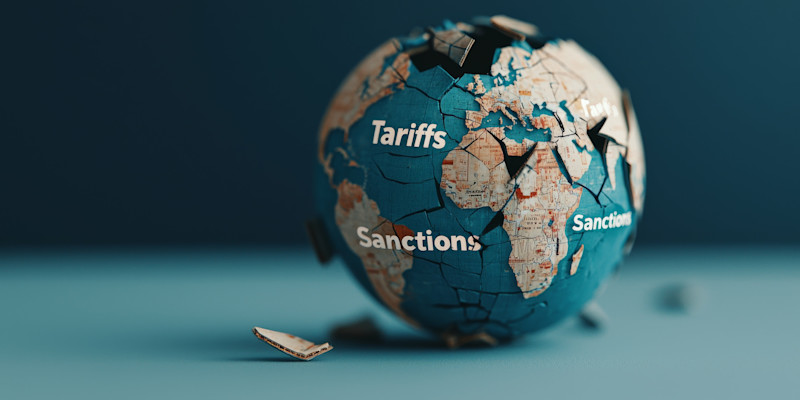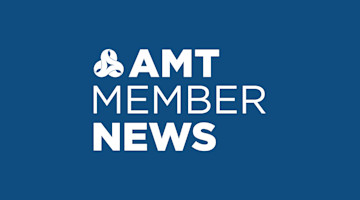U.S. president-elect Trump has threatened to impose up to 60% tariffs on imports from China. Although the intent is to safeguard U.S. industries, China has been ramping up its protectionism and there is real concern for retaliation. China will undoubtedly respond with retaliatory countermeasures, likely leading to a paradigm shift in global supply chains. We stand at a pivotal moment.
Would you like to reduce the impact of U.S. tariffs and potential retaliation from China or other industrial policy actions? Time to evaluate reshoring.
China’s trade retaliation is no laughing matter A growing trade war with China will likely mean increasing prices for American consumers and higher costs and supply chain disruption for U.S. manufactures. For example, just one day after the U.S. tightened export controls to limit China’s access to advanced semiconductor technology, Beijing retaliated with a critical minerals embargo. China banned exports of many materials essential to U.S. advanced manufacturing and military technology.
One week later, Beijing opened an antitrust probe into U.S. chip behemoth Nvidia. China launched additional countermeasures limiting sales to the U.S. and EU of key drone components. And the tightening on drone parts is just the beginning of broader export drone restrictions by Beijing expected in 2025.
China dominates production of many critical minerals and components, and its retaliations would be painful. A statement from China’s Ministry of Commerce said, “China has decided to strengthen export controls on dual-use (civilian and military) items to the United States, including prohibiting the export of dual-use items to US military users or military use, and strictly controlling the export of gallium, germanium, antimony, superhard materials and graphite-related dual-use items to the United States.”
The risk of retaliation is real.
Reshore to mitigate retaliation risks Since the beginning of the trade war, China has targeted U.S. companies with legislation like the “unreliable entry list” and the “anti-foreign sanctions law” Penalties imposed on companies or individuals include restriction of trade, investment and visas, and even sweeping powers to seize assets and block business transactions of actors that China perceives as harming its interests.
U.S. manufacturers should consider reshoring to mitigate the risks of tariff retaliation. U.S. import tariffs imposed during the 2018-19 U.S.-China trade war resulted in high tariffs on U.S. exports, leading to losses in U.S. export revenue. Tariffs on Chinese imports will raise the cost of domestic production, making it more difficult for U.S. manufactures to compete globally.
Localizing production and sourcing will not only reduce geopolitical risk but also make supply chains more resilient and sustainable, encourage investment in infrastructure and workforce development, strengthen the U.S. economy and generate well-paying jobs in manufacturing and other industries through the multiplier effect.
Many multinationals headquartered in the U.S. and in allied countries produce in China to supply the U.S. market. Shipments to the U.S. from these factories could take multiple hits: China export bans, U.S. tariffs and Taiwan related geopolitical risk. The best way to avoid these risks is to supply the U.S. by reshoring or nearshoring.
Evaluate and identify opportunities Use the correct metrics to evaluate your sourcing strategy and identify opportunities. Companies can use the Reshoring Initiative’s free online TCO Estimator and our new Geopolitical Risk measure to compare alternative sources. Geopolitical risks are the #1 factor in reshoring and foreign direct investment (FDI) trends. Consider reshoring and nearshoring as safeguards against tariff retaliation and ongoing global conflicts and tensions.
Preparing for the trade shift Engage in workforce training for the skilled workers needed for faster reshoring. Creating a talent pipeline is critical to reshoring and is the #1 criterion for U.S. manufacturing site selection.
Secure domestic raw materials and inputs where possible to ensure a stable supply, and monitor U.S. policy changes that may be beneficial to your strategy.
Automate where it makes sense. I advise manufacturers to evaluate the ROI of automation systems based on total cost of ownership (TCO). Reshoring is a major key to reducing risks and automation helps to make reshoring not only possible but globally cost-competitive. New automation technologies that overcome labor shortages and offset higher U.S. wages are helping to close the labor-cost gap and reshore more manufacturing to the United States. Use of TCO is key to calculating whether automation will enable reshoring. It is far more feasible to overcome a 5% TCO gap than a 30% free on board (FOB) price gap.
New business opportunities for small or medium-sized manufacturers (SMMs) There is a huge potential for new business opportunities for manufacturers to become suppliers to larger companies that are reshoring supply chains. It is time to prepare for those opportunities. Evaluate your own supply chain risks and shore up vulnerabilities. See if it makes sense to invest in new technologies. Promote and capitalize on your agility and response time as compared to offshore suppliers.
U.S. footprint mitigates tariff risk BMW CEO Oliver Zipse said in a 2024 Q3 earnings call that its U.S. manufacturing footprint might protect it from “geopolitical shifts and tariff impact" since 65% of the company’s cars sold in the U.S. are made in the U.S. Bath & Body Works CEO Gina Boswell said they have been reshoring to mitigate tariff risks. Boswell said, “One [reason] is minimal exposure. The other reason for onshoring is just flexibility with speed and agility.”
Are You Thinking About Reshoring? The Reshoring Initiative provides a broad range of data and tools to help companies decide which products or components to reshore. Are you thinking about reshoring? For help, contact me at 847-867-1144 or harry.moser@reshorenow.org.






